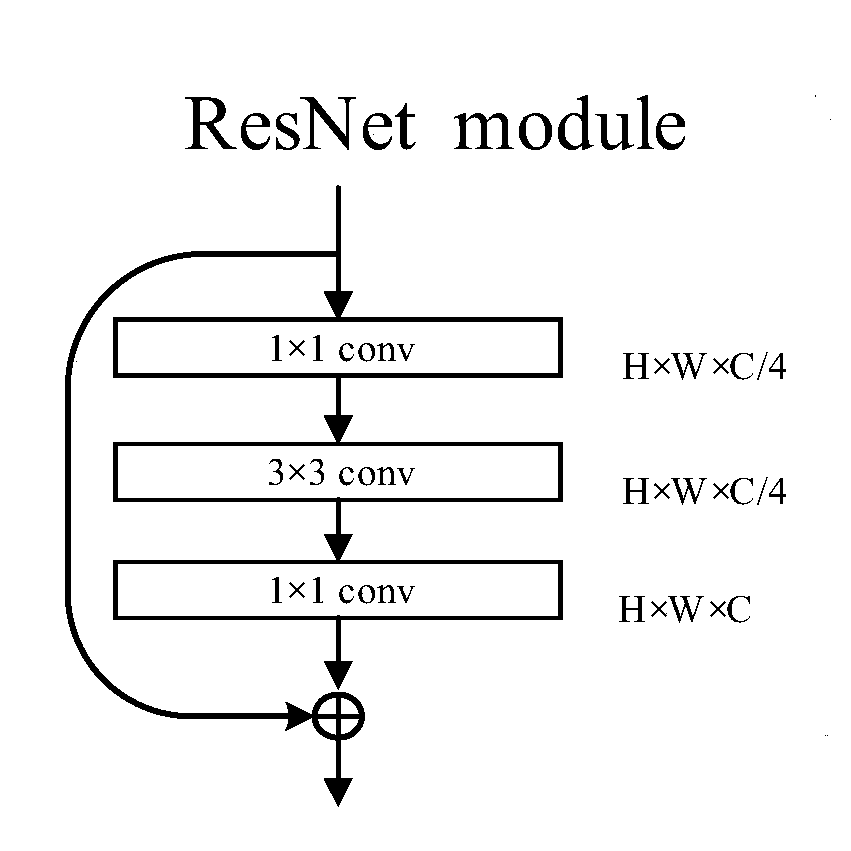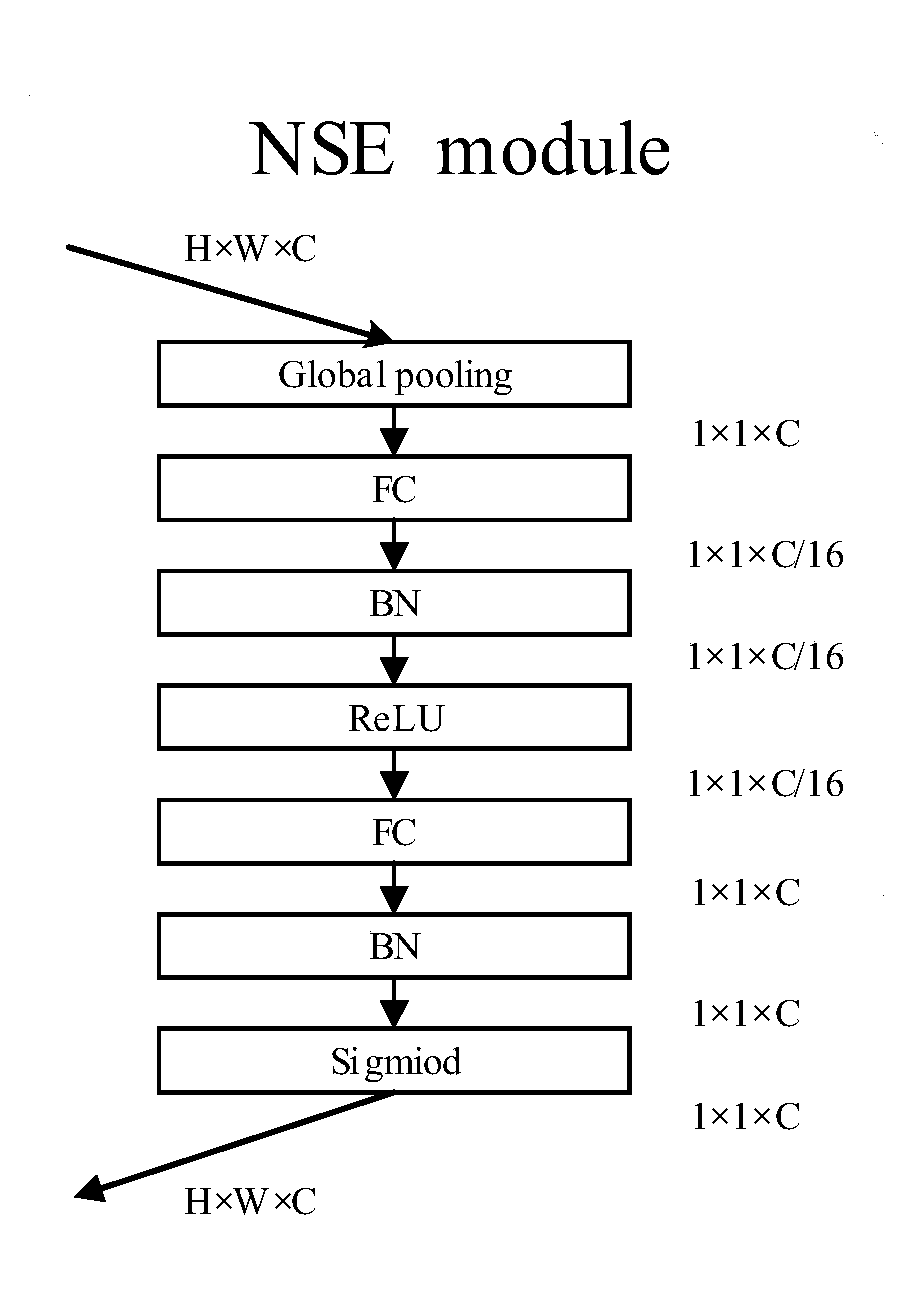Pedestrian re-identification method based on sparse attention network
A recognition method and attention technology, applied in the field of computer vision, can solve problems such as loss of effective features
- Summary
- Abstract
- Description
- Claims
- Application Information
AI Technical Summary
Problems solved by technology
Method used
Image
Examples
Embodiment Construction
[0051] In order to make the object, technical solution and advantages of the present invention clearer, the present invention will be further described in detail below in conjunction with specific examples.
[0052] The pedestrian re-identification model constructed by the present invention is a sparse normalized compression-excitation network, such as figure 1 As shown, it is mainly composed of a backbone layer in the middle, 4 short connections on one side of the backbone layer, and 4 normalized compression-excitation modules on the other side of the backbone layer.
[0053] (1) Backbone layer:
[0054] The first convolutional layer, the convolutional layer is composed of filters with a kernel size of 7×7, which is used for dimensionality reduction. After dimensionality reduction, the image becomes 1 / 4 of the original image size, so this layer is mainly to reduce Calculations.
[0055] The second layer is the maximum pooling layer, that is, the maximum value is taken in th...
PUM
 Login to View More
Login to View More Abstract
Description
Claims
Application Information
 Login to View More
Login to View More - R&D
- Intellectual Property
- Life Sciences
- Materials
- Tech Scout
- Unparalleled Data Quality
- Higher Quality Content
- 60% Fewer Hallucinations
Browse by: Latest US Patents, China's latest patents, Technical Efficacy Thesaurus, Application Domain, Technology Topic, Popular Technical Reports.
© 2025 PatSnap. All rights reserved.Legal|Privacy policy|Modern Slavery Act Transparency Statement|Sitemap|About US| Contact US: help@patsnap.com



